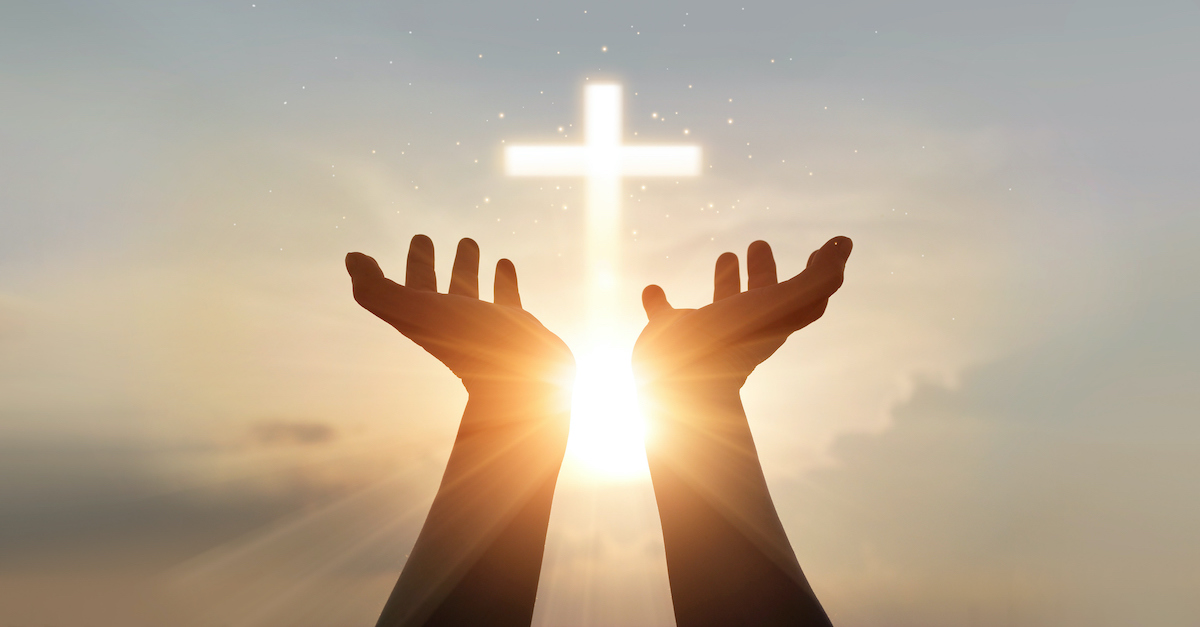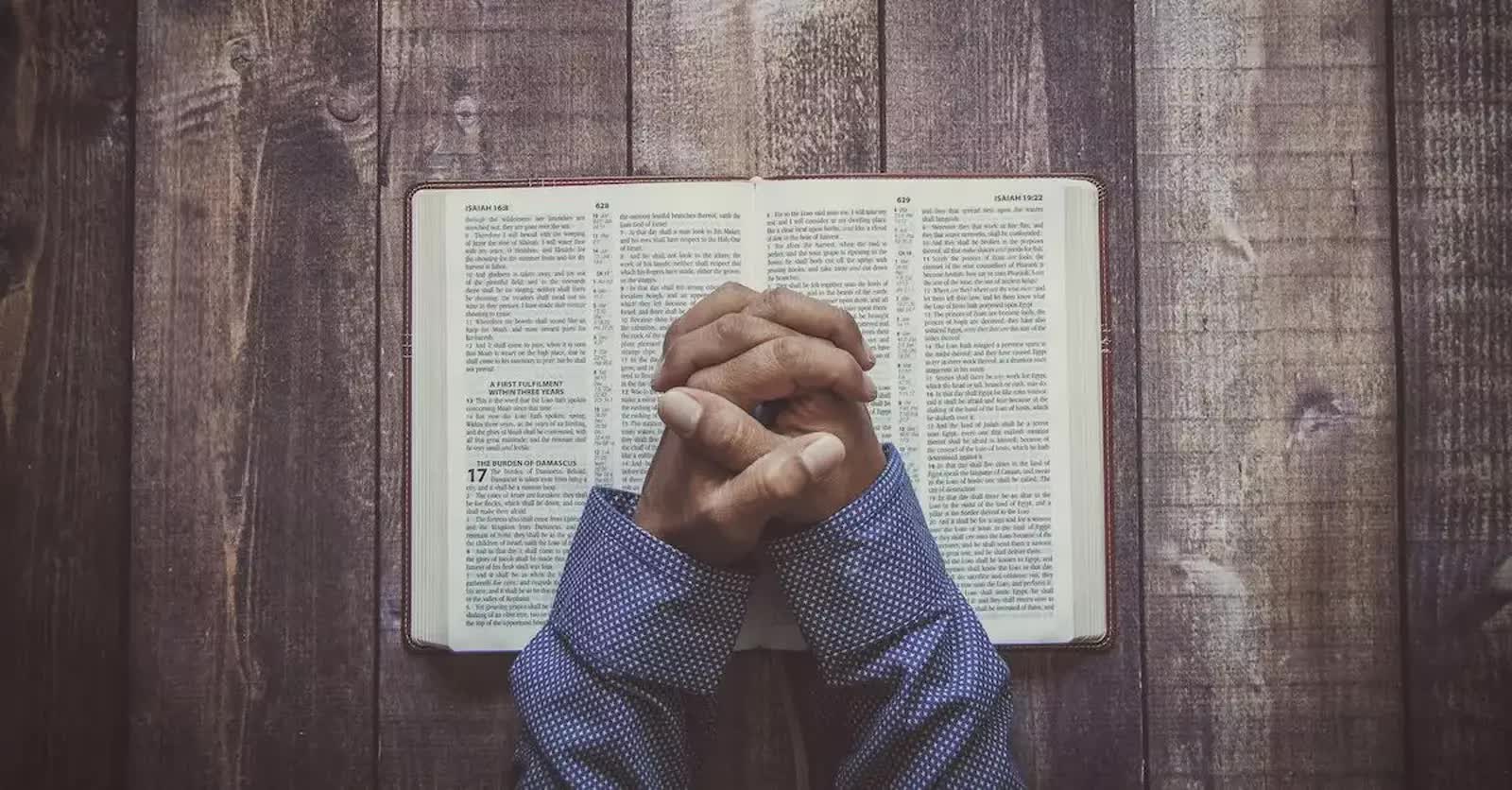What Happens to Believers in-between Death and Ultimate Resurrection?
Share

As humans we know that physical death is inevitable. We all eventually die. And, as believers, we have a hope that death is not the end. At some time in the future we look forward to a resurrection of believers where we will be reunited with our bodies and live forever in the new heavens and earth.
But what about that period between the death of our bodies and our resurrection? Where are we during that time and what, if anything, are we doing?
Soul Sleep
There is one school of thought on this topic that holds to something often called “soul sleep.” This is essentially like suspended animation. Our bodies lie rotting in the ground while our souls sleep, unaware of the passing of time. This “sleep” comes to an end at the trumpet call of the archangel when our souls are reunited with newly resurrected bodies.
There are a few Scriptural passages that hint at this state. In John 11:11, after Lazarus death, Jesus tells his disciples that Lazarus is merely asleep. In 1 Thessalonians 4:13 Paul gives comfort and instruction to the church concerning those who had fallen asleep. And, in 1 Corinthians 15:51, in his discussion of the resurrection, Paul says that we will not all sleep. In all three of these passages the reference to sleep is referring to physical death.
The primary problem with this view, at least in my mind, are the passages that refer to our being with Jesus when we die. That would seem to imply a conscious state in fellowship with Jesus.
In a Conscious State
One of these passages that implies a conscious state comes from Luke 23:43. In this passage Jesus assured the repentant thief on the cross that they would be together in Paradise that day. Paradise translates the Greek word used for the Garden of Eden in the Greek Old Testament. And it seems to be what is referred to as the bosom of Abraham in Luke 16:22, the abode of the righteous dead awaiting the judgement day. It is a place of conscious awareness and experience.
In 2 Corinthians 5:1-9, Paul contrasts his earthly life with what is to come. In verse 6 Paul says, “that as long as we are at home in the body we are away from the Lord.” And in verse 8 he goes on to say that he “would prefer to be away from the body and at home with the Lord.” The contrast here is between being at home in the body and at home with the Lord; we are either living in our bodies or living with the Lord. This very much seems to be a conscious state. Verse 9 emphasizes that point when he says that “we make it our goal to please him, whether we are at home in the body or away from it.” How can we have a goal of pleasing the Lord if we are unconscious?
A third passage that speaks to this issue comes from Paul’s letter to the Philippian church. In Philippians 1:21-24 he shares his feelings about continuing to live physically verses dying. He believes that dying will be better for him, because then he is with the Lord. For Paul, the choice is not between physical life and soul sleep. Instead, the choice is between a physical life of service for the Lord and leaving this life behind and living with Christ.

Photo credit: ©Getty Images/ipopba
Revelation contains a series of visions given to John. These visions were given to John by Jesus “to show his servants what must soon take place” (Rev. 1:1). During one of these visions, Revelation 6:9-11, John saw “under the altar the souls of those who had been slain because of the word of God and the testimony they had maintained.” They were crying out for judgement against their killers but were told to wait for a while. This is a picture of saints who have died and are awaiting the final judgement, which comes at the resurrection. Two things to note about them. First, they are conscious and aware of what is happening on earth. And secondly, they are under the heavenly altar, in the presence of God.
One last passage to consider here comes from Romans 8:38-39. In this passage Paul expresses his belief that nothing will be able to separate him from the love of God, including death. While this passage does not explicitly express that we will be in conscious state between death and resurrection, it does affirm that we will experience God’s love, even while in the grave.
But Not the Final State
The Scripture is clear that when our bodies die, we are immediately in the presence of the Lord, living with him. Yet it is equally clear that there is more yet to come. While we are conscious and with the Lord, we are unclothed, disembodied. While some will hold to us being spiritual-only beings for eternity, the Scripture teaches that we will experience a bodily resurrection. At some point we will be reunited with bodies and will continue in that state forever.
In 1 Thessalonians 4:13-18 Paul sought to comfort and instruct the church there concerning some of their members who had died, or fallen asleep, before Christ’s return. In this passage Paul assures them that those who have died will be with Jesus at his return. When the trumpet sounds, they will arise from their graves, followed by the transformation of those still living. And after that, we will be with the Lord forever.
This resurrection is bodily. They are rising from their graves, not as ghosts, but in physical form. We can ask many questions about how this bodily resurrection occurs and what we might look like. But the Scripture does not answer all our questions. What it does do is hold out hope that someday we will be reunited with our bodies.
The fifteenth chapter of 1 Corinthians is an extensive discussion about the resurrection. Paul starts by affirming the physical resurrection of Jesus. Once he has established that Christ has indeed been resurrected bodily, he goes on to discuss the resurrection of believers. In verse 35 he asks the question “How are the dead raised? With what kind of body will they come?” In the verses that follow he answers by saying that our bodies will be different than they are now. What dies is a perishable, dishonorable, weak, and natural body. What is raised is an imperishable, glorious, powerful, and spiritual body.

Photo credit: ©Getty Images/Arrangements-Photography
The Coming Resurrection
This conscious, but disembodied, state will not last. There is coming a time when Christ will return and the dead will be raised, some to eternal life (John 6:40), and some to everlasting destruction (2 Thess. 1:6-10). In John 14:3 Jesus promised his disciples he was going to prepare a place for them, and that he would return for them. This promise was not just for the eleven in the upper room with him, but for all his disciples throughout history. All who have believed in him, making him Lord of their lives.
There are several passages in the New Testament that describe this event for the believer, including Matthew 24:30-31 and 1 Thessalonians 4:16-17. But the most descriptive is found in 1 Corinthians 15:52-54.
“Listen, I tell you a mystery: We will not all sleep, but we will all be changed— in a flash, in the twinkling of an eye, at the last trumpet. For the trumpet will sound, the dead will be raised imperishable, and we will be changed. For the perishable must clothe itself with the imperishable, and the mortal with immortality. When the perishable has been clothed with the imperishable, and the mortal with immortality, then the saying that is written will come true: ‘Death has been swallowed up in victory.’”
Not every believer will sleep, or experience physical death. But we will all experience the transformation that comes at the Lord’s return. Whether in the body, or without a body, we will be changed and clothed with an imperishable immortality.
Our Great Hope
As believer’s we have a great hope. But that hope is not found in this life (1 Cor. 15:19). We look forward to Christ’s return for us and our becoming, in some way, like him (1 John 3:2-3). But most of us will experience physical death before Christ’s return. And just what will happen to us between then and Christ’s return is not well known. But the Scripture does affirm that we will be in a conscious state and that we will be with the Lord.
And, while we live in the body, we can take comfort in knowing that death has been conquered and is nothing we should fear. When we are away from the body, we are with the Lord (2 Cor. 5:8; Phil. 1:23).
Related articles
6 Ways to Store Up Treasures in Heaven
What is the New Heavens and New Earth Mentioned in Isaiah and Revelation?
What Happens After Death? Understanding Where Your Soul Goes
Photo credit: ©Getty Images/Smileus
